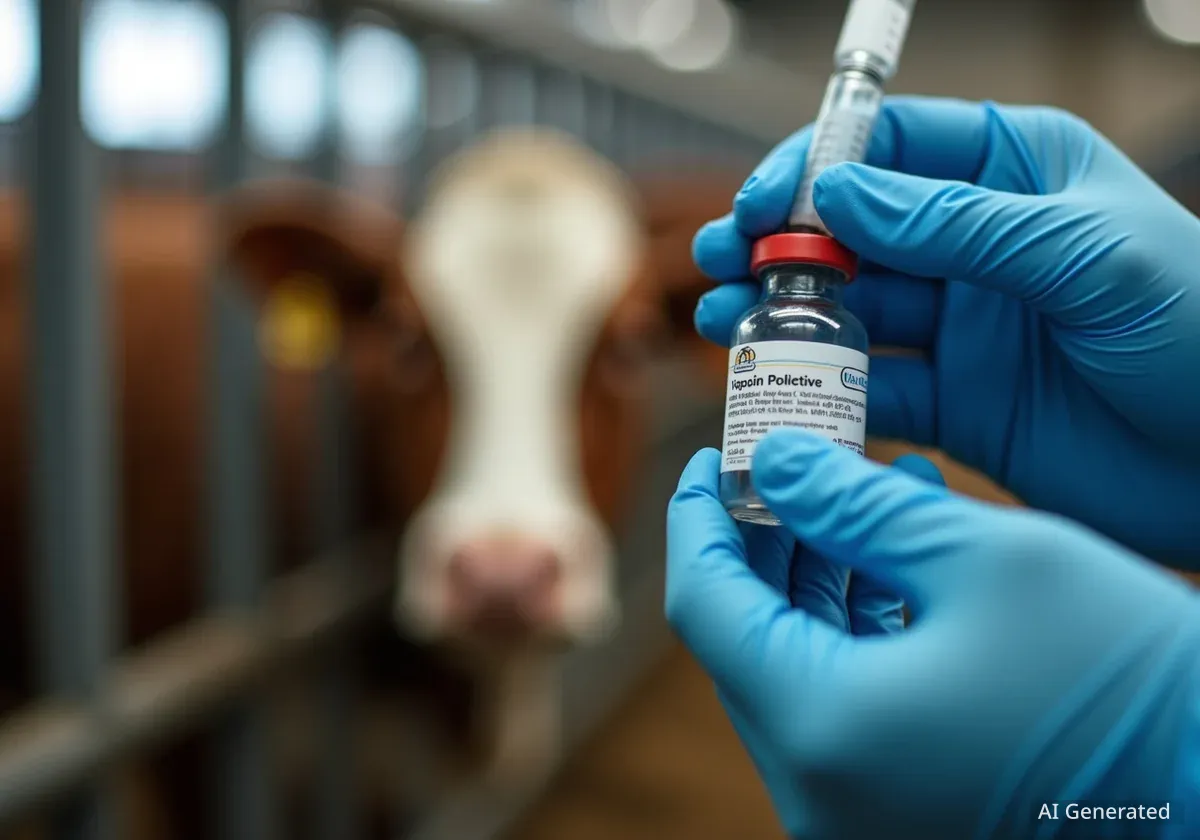Stefan Schumacher has been appointed as the new President of the Bern Foundation for Agricultural Credits (BAK). This leadership change is part of a broader generational shift within the foundation's board for the upcoming 2026 to 2029 term. Susanne Remund-Schenk will serve as the new Vice-President, bringing fresh perspectives to the organization's strategic direction.
Key Takeaways
- Stefan Schumacher is the new BAK President.
- Susanne Remund-Schenk is the new Vice-President.
- The new term for the board is 2026 to 2029.
- Two new members, Markus Gerber and Hanna von Ballmoos-Hofer, join the board.
- BAK provides crucial financial support to agricultural businesses in Bern.
New Leadership Appointments at BAK
The Stiftungsrat, or Foundation Board, of the Bern Foundation for Agricultural Credits recently made key leadership decisions. Stefan Schumacher's election as President marks a significant moment for the foundation. His appointment signals a new chapter for the organization, which plays a vital role in supporting the agricultural sector in the Canton of Bern.
Alongside Schumacher, Susanne Remund-Schenk has been elected as Vice-President. These appointments come as the foundation prepares for its new four-year term, spanning from 2026 to 2029. The changes reflect a deliberate effort to refresh the board's composition and leadership.
Fact: Bern Foundation for Agricultural Credits (BAK)
The BAK provides essential financial services to agricultural businesses. This includes investment credits and operational assistance loans. The foundation also supports construction projects related to the processing, storage, or marketing of agricultural products, such as cheese dairies. Additionally, BAK manages forestry credits on behalf of the Canton of Bern.
Board Members Re-elected and New Additions
In addition to the new presidential leadership, the Bernese Cantonal Administration announced other important changes to the Stiftungsrat. Christoph Fankhauser, Kurt Stauffer, and Michael Gysi have all been re-elected to their positions. Their continued presence provides stability and institutional knowledge to the board.
Two new members have also joined the Foundation Board: Markus Gerber and Hanna von Ballmoos-Hofer. These individuals were selected after a public tender process, a first for filling vacancies on the board. This open selection process highlights a commitment to transparency and finding qualified individuals from a broader pool of candidates.
"The introduction of a public tender for board vacancies demonstrates our commitment to transparency and securing the best talent for the future of Bern's agricultural sector," stated a representative from the Bernese Cantonal Administration.
Departures and Generational Transition
The leadership changes are also driven by the retirement of current board members. The outgoing President, Ulrich Stoller, and Vice-President, Etienne Klopfenstein, will step down at the end of 2025 due to age limits, according to the canton. Their departure opens the door for new leadership to guide the foundation.
This generational transition is a natural part of organizational evolution. It ensures that the board remains dynamic and responsive to the evolving needs of the agricultural community. The new leadership team will be responsible for upholding BAK's mission and adapting its services to future challenges.
Supporting Bern's Agriculture
The agricultural sector is a cornerstone of the Bernese economy. Foundations like BAK are crucial for ensuring its stability and growth. By offering targeted financial support, BAK helps farmers and agricultural businesses innovate, expand, and maintain operations. This support is vital for rural development and food security within the canton.
The Role of the Foundation Board
The Foundation Board of BAK is designed to be comprehensive and well-supported. Its members include experts from various fields, including banking, trust services, and agriculture. This diverse expertise ensures a holistic approach to decision-making and strategic planning.
According to the Canton of Bern's website, this broad representation is key to the foundation's effectiveness. It allows BAK to address complex financial and agricultural challenges from multiple perspectives. The board's structure aims to provide robust oversight and guidance for the foundation's activities.
The new board, under Stefan Schumacher's presidency, will continue this tradition. They will work to strengthen the foundation's role in supporting Bern's agricultural landscape. Their focus will remain on providing accessible and effective financial solutions for farmers and related businesses.
Looking Ahead to the 2026-2029 Term
The upcoming term, starting in 2026, will present new opportunities and challenges for the Bern Foundation for Agricultural Credits. The new leadership and board members will be tasked with navigating economic shifts, environmental considerations, and technological advancements in agriculture.
Their collective experience and renewed energy are expected to drive the foundation forward. The public tender for new board members, a progressive step, underscores the commitment to finding the most qualified individuals. This approach aims to ensure strong governance and effective resource allocation for years to come.
The foundation's work extends beyond simple loans. It involves fostering a sustainable and prosperous agricultural community. With Stefan Schumacher at the helm, and a diverse board, BAK is positioned to continue its important mission in the Canton of Bern.




